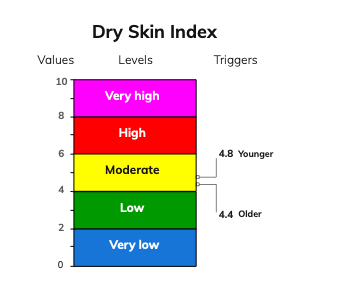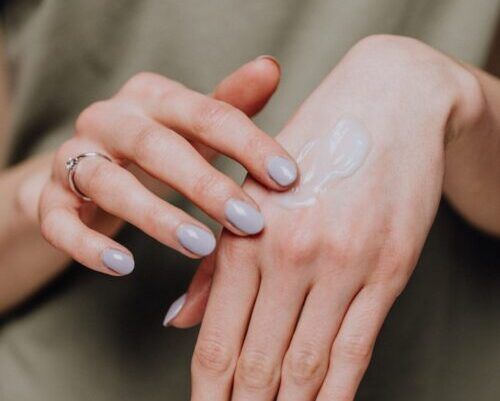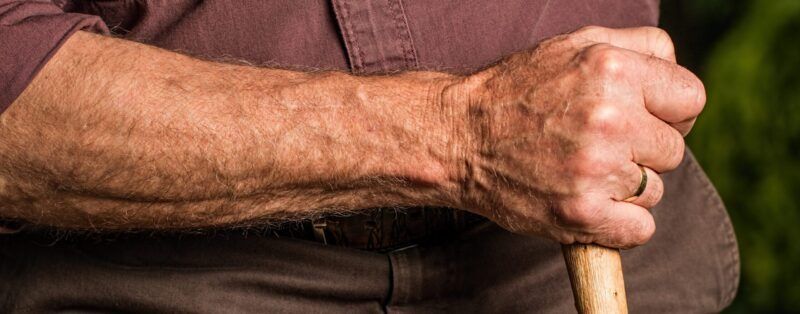What levels of the Dry Skin Index initiate dry-skin formation?
A fundamental issue impacting our personal skin care is the inability to sense the magnitude of drying stresses on skin. This really inhibits the timely and effective use of skin moisturizers and/or humidifier. But what levels of the Dry Skin Index might trigger dry-skin formation?
The Dry Skin Index is broken down into five stress categories ranging from very low to very high. Previously we identified the optimum relative humidity associated hydrated skin, but not the DSI levels at which people should begin to hydrate skin. Fortunately, data derived from a study by Jin et al. (2021) allows us to identity key threshold levels.



